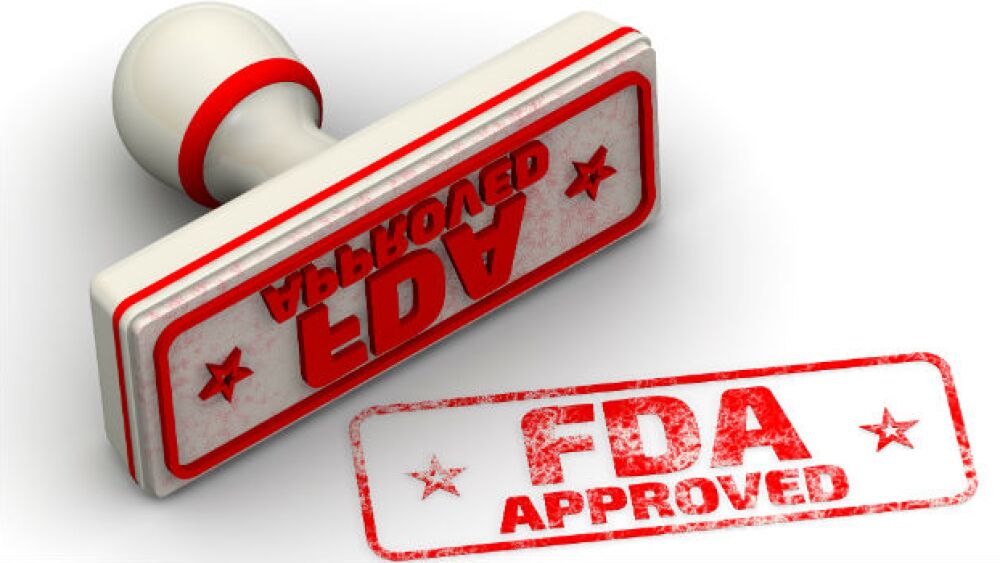Akorn secured approval for a post-operative eye drop, as well as a generic over-the-counter version of GSK’s Flonase.
Shares of Lake Forest, Ill.-based Akorn, Inc. jumped more than 12 percent in premarket trading after the company announced two of its generic products were approved by the U.S. Food and Drug Administration (FDA) on Thursday.
The positive announcement offset a five-point loss of company stock drop. Akorn scored approval for a post-operative eye drop and for a generic version of GlaxoSmithKline’s Flonase nasal spray.
The eye drop that received a new Abbreviated New Drug Application approval from the FDA is Loteprednol Etabonate Ophthalmic Suspension, 0.5%. Akorn’s drop is a generic of Bausch + Lomb’s Lotemax. The drops are used to treat post-operative inflammation following ocular surgery, Additionally, the drops were approved for the treatment of steroid responsive inflammatory conditions of the palpebral and bulbar conjunctiva, cornea and anterior segment of the globe such as allergic conjunctivitis, acne rosacea, superficial punctate keratitis, herpes zoster keratitis, iritis, cyclitis, selected infective conjunctivitis, the company said.
Douglas Boothe, Akorn’s president and chief executive officer, said the company believes this is a first generic approval for loteprednol suspension. He said the approval highlights the company’s ability to “execute on development and manufacturing of complex ophthalmic suspensions.” Boothe noted that the company is already in the final stages of preparing for the commercial launch of the eye drop. It will be manufactured at the company’s Amityville, N.Y. facility, he said.
Citing IQVIA, Akorn said sales of Lotemax generated $89 million last year.
Akorn also scored approval for an over-the-counter Fluticasone Propionate Nasal Spray, a generic version of GSK’s Flonase. The company’s fluticasone nasal spray is indicated for the temporary relief of hay fever and other upper respiratory allergies in adult and pediatric patients 4 years of age and older.
Boothe said the company is excited about expanding its over-the-counter offerings of its nasal spray. Boothe noted that the company has a supply agreement for the nasal spray with Innovus Pharmaceuticals, Inc. under the name Fluticare.
The approval of the two drugs comes almost one year after the date that Germany-based Fresenius walked away from a deal to acquire Akorn. In April 2017, Fresenius plunked down $4.3 billion to acquire Illinois-based Akorn, but backed out of the deal one year later. Fresenius said it decided against moving forward with the deal due to Akorn’s failure to “fulfill several closing conditions.” Fresenius said there were concerns over “material breaches” of data integrity requirements related to the company’s operations. Fresenius said the breaches were discovered during an independent investigation of the company it was acquiring.
Akorn took legal action to force Fresenius to go through with the merger agreement, but that was denied by the court. Fresenius also took legal action, claiming contract damages due to the termination agreement and then later added fraud allegations. Fresenius claim of fraud was denied by the court. The Court of Chancery denied Fresenius’s motion on Feb. 28, noting that “Fresenius did not previously assert a claim for fraud, and the liability phase of the case has concluded. Fresenius could have asserted a claim for fraud at the outset of the case, or amended its pleadings during discovery or before trial. The parties chose to litigate breach of contract claims. It is too late now to introduce a new theory of liability.”
Boothe said the remaining claim of contractual damages is without merit and the company will “vigorously defend ourselves against it.”





